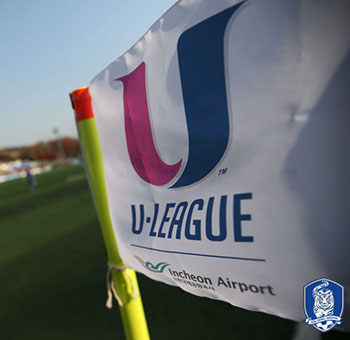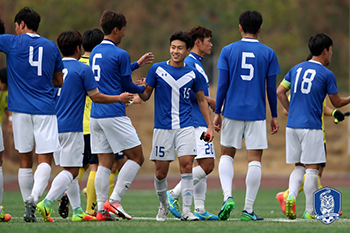
From 2017, student athletes must keep up a GPA of 2.0 or above in the previous two semesters to be eligible to compete in games hosted, sponsored or approved by the Korea University Sport Federation (KUSF). The new decree, refered as the “C zero rule” is stirring up controversies within the sports community.
As part of the government’s measures, The Ministry of Culture, Sports and Tourism gave KUSF the authority to create new regulations with the intention to foster academically achieved athletes. KUSF monitored the GPA of 1,450 student athletes from its 59 member universities and concluded that 102 students will be prohibited from competing in all university leagues in the 2017 spring semester. Hence, 89 soccer players, seven basketball players, four volleyball players and two handball players have lost their positions on the field. Furthermore, KUSF is now trying to expand the C zero rule to more sports and is in the process of persuading other sports organizations.
Even though the new regulation is intended to motivate student athletes in their academics as well as their sports, many claim that the C zero rule will act as an obstacle in the careers of these athletes. University sports leagues are an important gateway to a professional career or a seat in the national team. Missing even one game is fatal to senior students, and a few university teams have simply been banned from competing in official games.
U-League, a prestigious soccer tournament hosted by the Korea Football Association (KFA), suffered the most from the C zero rule. Soccer teams from Yonsei University will not compete in the 2017 U-League because the C zero rule has cut down the number of eligible players on their teams. Dong-a and Daegu University soccer teams have registered for the U-League, but is unsure about participation. Due to strong resistance of the banned athletes’ parents, both teams will announce their decision just before the opening of the U-League.
Jeonju University’s soccer team opposes the policies of KUSF and plans to allow three players to compete in the U-League, despit their GPA of under 2.0. If disciplinary measures are taken, their parents have even threatened a lawsuit against the KUSF.
Matter of fairness has also been raised about the C zero rule because not all university sports teams are members of KUSF. This problem is most evident in the U-League. Amongst the 85 university soccer teams registered to compete in the U-League, only 51 teams are regulated by the KUSF. Although the C zero rule is not legitimate to those of non-member universities, KUSF strongly claims that all participant teams of the U-League need to follow the C zero rule because KUSF is the main sponsor. Non-member university teams view this issue as unfair, since they have to follow the regulations of an organization they are not part of. Non-member university soccer teams have not submitted the GPA of their student athletes to the KUSF. Conversely, KUSF and its member university teams insist that it is unfair if teams subject to the C zero rule and non-member teams that do not have to follow the regulation compete under the same conditions.
In response to the controversy of the C zero rule, KUSF and KFA have not yet come up with a solution and have been trying to settle an agreement since the meeting on March 3. To further altercate the situation, The Ministry of Culture, Sports and Tourism has met with the KFA on March 16 to discuss the application of the C zero rule. Even though the opening of the U-League on March 24 is approaching, no solution is apparent as KUSF’s stance on the issue is uncompromising.
“If the KFA enables athletes with a GPA under 2.0 to play, we are even considering withdrawall of all the budget support at the extreme,” said Kang Shin-wook, Commissioner of KUSF.


